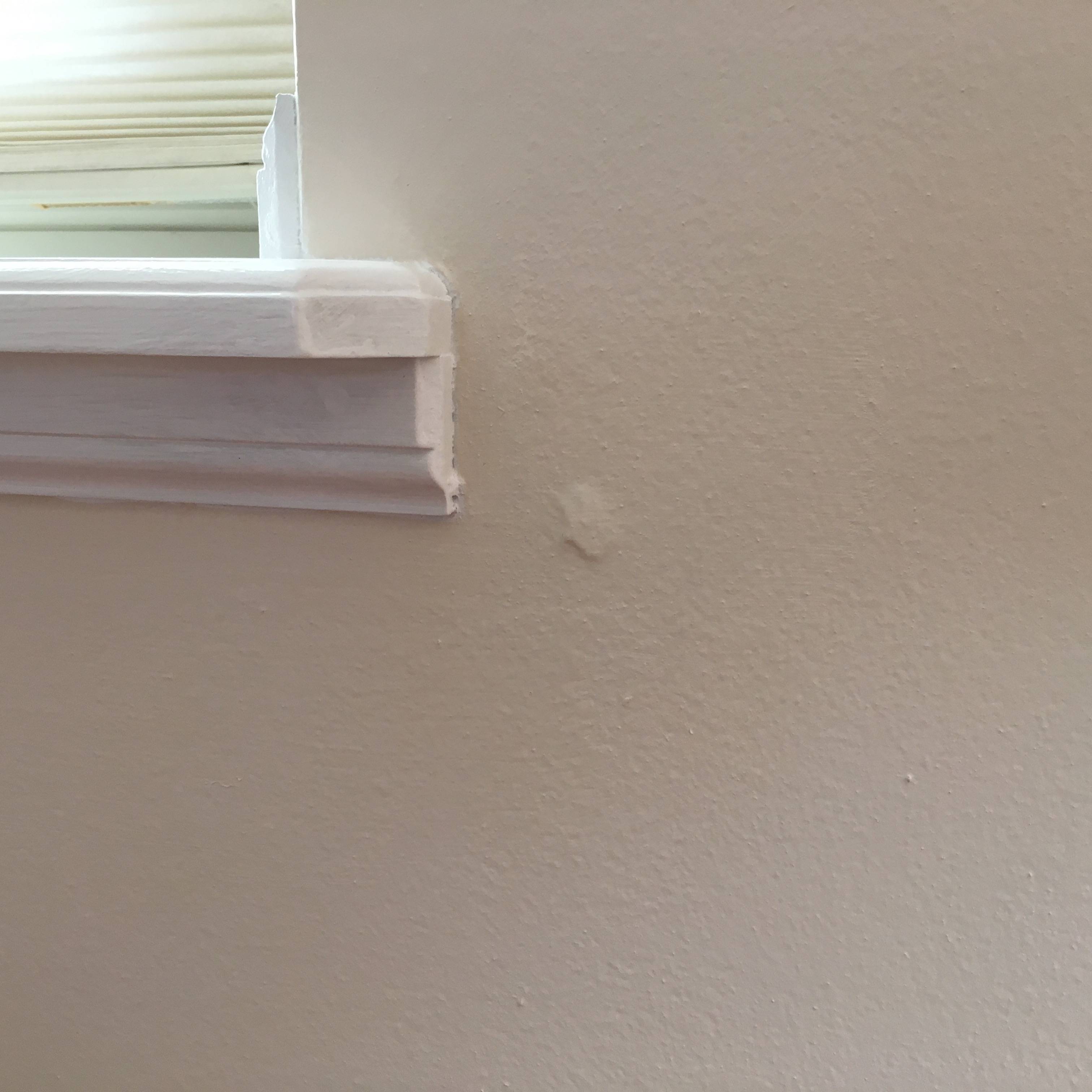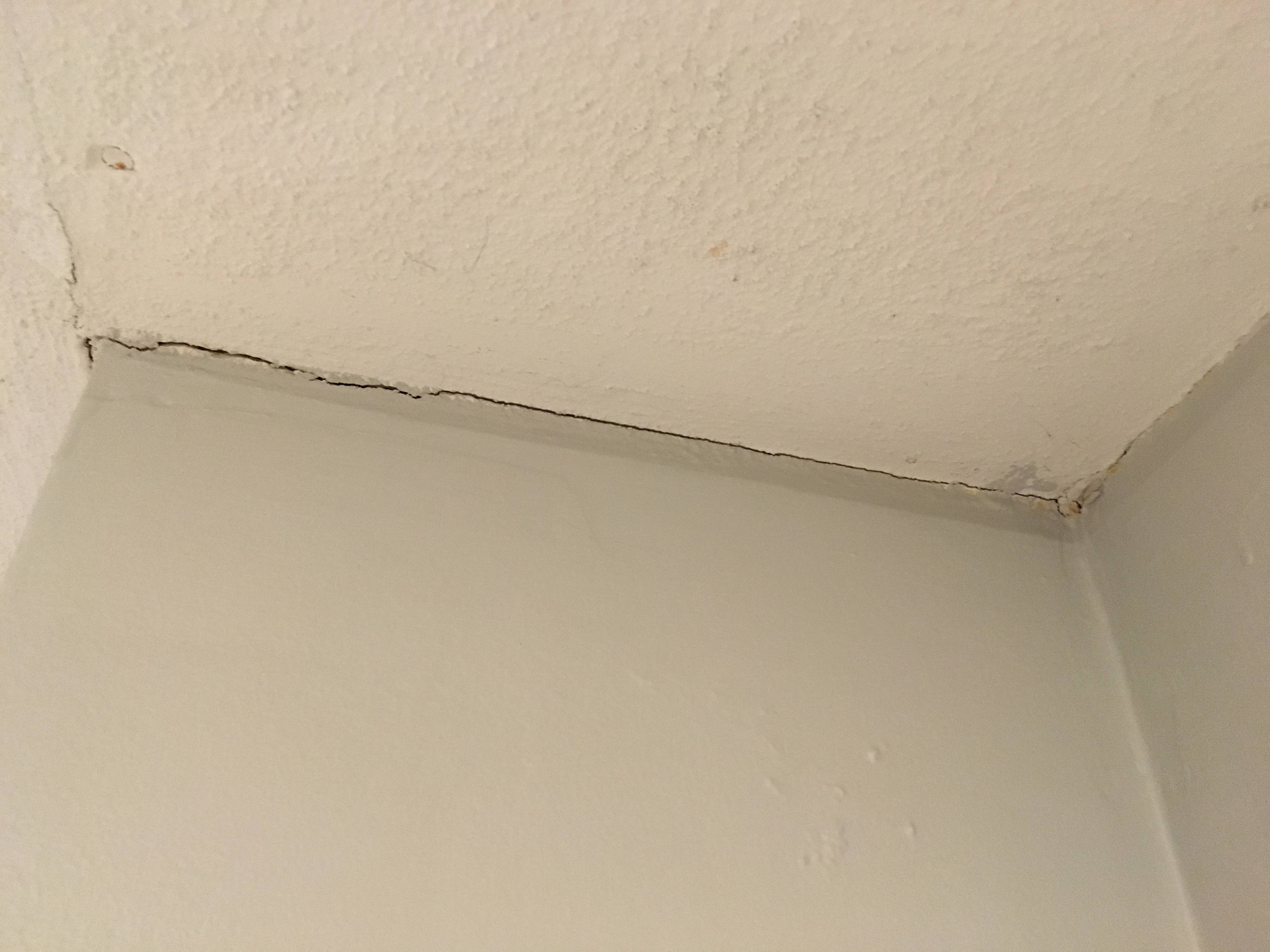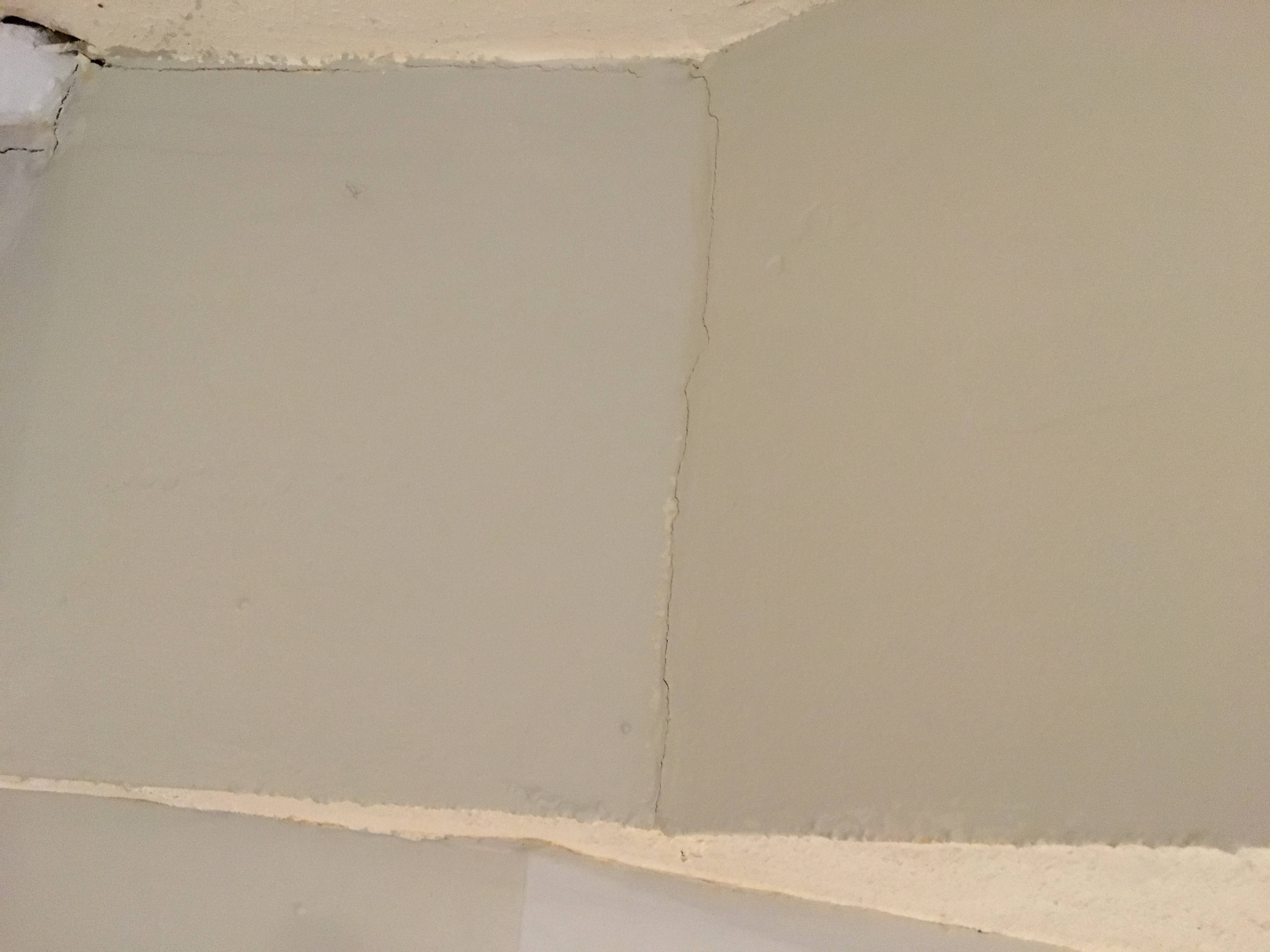This house is about 20 years old and we purchased it last April without seeing any of this stuff. The inspection came back OK but we found a decent sized foundation crack on the walkthrough under some insulation (good times...) Over the year we've noticed regular popping noises and now we're seeing cracks in the drywall in the finished basement and screw pops on the main floor. After purchase we also discovered that the underground drainage system was blocked up by tree roots so we had that replaced and a company came in and mortared some minor (less than 1/8 inch) cracks in the foundation. There are two walls of the finished basement that we haven't opened up yet so we're not 100% sure what's going on with those walls.
Lots of drywall blemishes like this on the first floor, with the worst ones all along the same wall.

In the finished basement we've got cracks at all the seams where walls meet ceiling.

More basement fun.

So the question becomes this - have we reached the point of being alarmed? Should I just treat is as cosmetic for now and fix the drywall as I see fit or go for broke and throw in with some contractors? None of the cracks we can actually see in the basement foundation walls appear to have moved at all over the winter. The companies I've called regarding this sort of thing gave me the gamut of answers and estimates, and I honestly don't trust anyone with any financial incentive to give a true answer.
